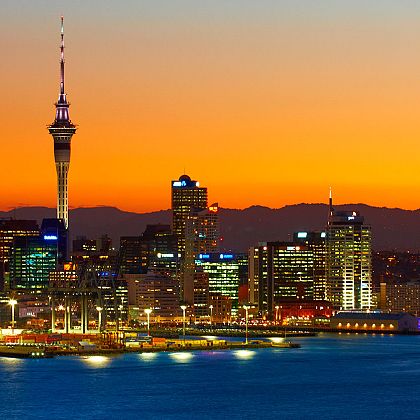
New Zealand is a country in the south-western Pacific Ocean comprising two large islands (the North Island and the South Island) and numerous smaller islands, most notably Stewart Island/Rakiura and the Chatham Islands. The indigenous Maori named New Zealand Aotearoa, which is usually translated into English as The Land of the Long White Cloud. The Realm of New Zealand also includes the Cook Islands and Niue, which are self-governing but in free association; Tokelau; and the Ross Dependency (New Zealand’s territorial claim in Antarctica).
New Zealand is notable for its geographic isolation, situated about 2000 km (1250 miles) southeast of Australia across the Tasman Sea, and its closest neighbours to the north are New Caledonia, Fiji and Tonga. During its long isolation New Zealand developed a distinctive fauna dominated by birds, many of which became extinct after the arrival of humans and the mammals they introduced.
New Zealand’s population is diverse, with a majority of European descent and the indigenous Māori as the largest minority. Asian and non-Māori Polynesian communities also form significant parts of the population, particularly in urban areas. The country is a constitutional monarchy, with Queen Elizabeth II as the symbolic Head of State, represented by a non-partisan Governor-General. Political power lies with the democratically elected Parliament, led by the Prime Minister as Head of Government.
New Zealand’s qualifications are globally recognized and highly regarded, supported by a robust quality assurance system managed by the New Zealand Qualifications Authority (NZQA). This ensures all institutions meet strict standards, providing confidence to international students. Known for its innovative spirit, New Zealand has produced world-renowned figures like Nobel Prize-winning scientists Ernest Rutherford and Alan MacDiarmid, as well as Richard Taylor, whose Weta Workshop brought The Lord of the Rings trilogy to life. This creative and forward-thinking environment makes New Zealand an inspiring place to study and work.
-
- 20 hrs work permit
- 3 years stay-back
- Affordable fees
- Family can accompany with selected course
- IELTS 6 can apply
Nursing
New Zealand is experiencing high demand for skilled nurses due to an aging population and healthcare needs. The government is actively recruiting internationally qualified nurses, offering streamlined visa processes and relocation support. Recent initiatives include increased healthcare funding and improved pay scales under the NZ Nurses Organization agreements. With its focus on work-life balance and high quality of life, New Zealand remains an attractive destination for nurses seeking professional growth and a welcoming environment.

Great news for aspiring nurses! New Zealand has introduced specialized IQN (Internationally Qualified Nurses) and OSCE (Objective Structured Clinical Examination) training programs, replacing the old CAP (Competence Assessment Program) system. Now, all internationally qualified nurses, including GNM passed students, will need to clear the OSCE to become Registered Nurses (RN) in New Zealand. These programs are designed to help GNM passed students meet the necessary standards and excel in their OSCE exams, a crucial step for nursing registration. This is an excellent opportunity for GNM passed students to enhance their skills, gain international exposure, and advance their nursing careers. To learn more about these training programs and how they can benefit you, please click here.

